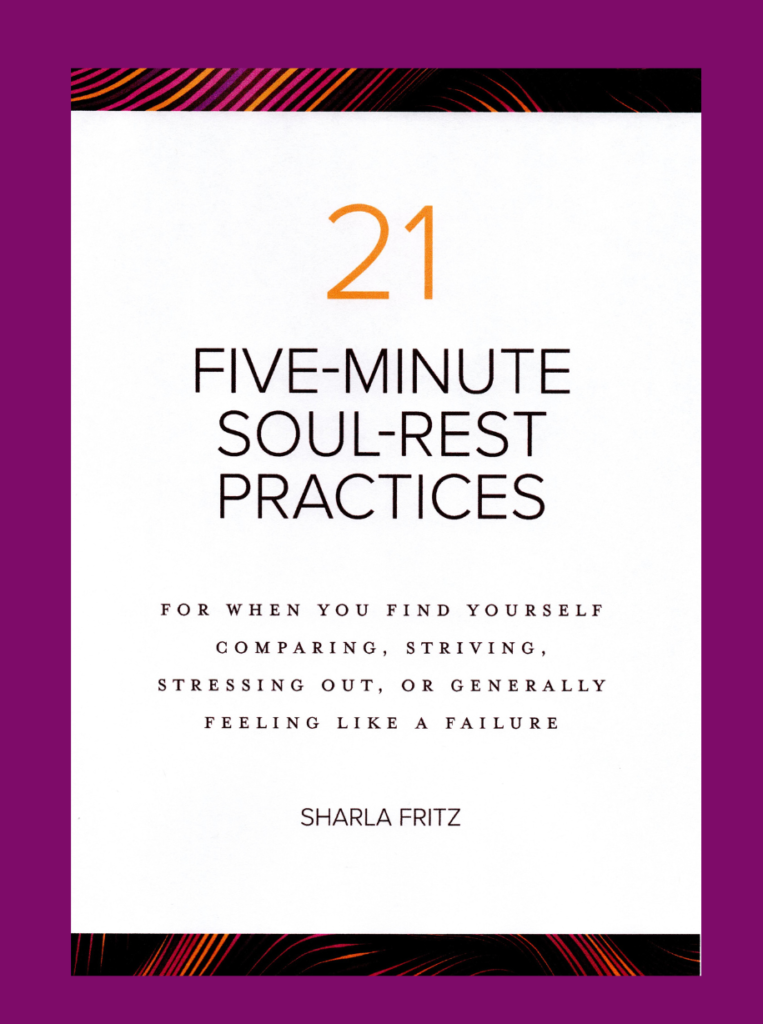I want to help you make the most of your summer by giving you four questions that can guide your decisions.
I love summer. I look forward to being able to go outside without first bundling up in boots, coats, hats, and gloves. I love the more relaxed teaching schedule that gives me more time to read. I indulge in picnics and outdoor concerts.
But the summer often goes by way too fast! Too often, I’ve let the season fly by without doing the activities I enjoy. I’ve come to the first of September carrying regret that I didn’t make the most of the days of sunshine and warm weather.
You, too? We can all get caught up in our daily routines and miss opportunities to revel in summer activities.
So to help you, I’ve come up with four questions to ask yourself in order to make the most of your summer.
Question 1: What feels like rest to you?
This question may surprise you, but hear me out. In those summers when I’ve not taken advantage of what the season has to offer, I’ve arrived at fall just as burnt out and exhausted as I felt in May. I want my summer to renew and recharge my weary soul, but I’ve found it doesn’t happen automatically. If I don’t incorporate restful activities into days, my heart will begin to unravel and my soul will wear thin.
I’ll share a short list of what feels like rest to my soul:
- time to read
- walking in nature
- talking and laughing with friends
- dinner out with my husband
- time in God’s Word
Now it’s your turn. Make a list of what feels like rest to you. What energizes you? What renews you?
Question 2: What matters most to you this summer?
Think about what you most want to do in the next few months. What sounds especially fun to you? Which activities make your heart sing? What will you regret if fall comes and you haven’t done this important thing?
It might help to think about this question in categories. Think about:
- Time to have fun
- Time to get away
- Time to relax
- Time with family and friends
- Time with God
As an example, I’ll list a few things that matter most to me this summer. I love going to Ravinia in the summer to hear the Chicago Symphony Orchestra play, so this is what matters most in the category of fun. I’m going to get away by going to a large convention in Milwaukee where I’ll meet up with fellow authors and sisters in Christ. I will relax with my favorite hobby of reading (my to-be-read stack is beckoning!). I’ll take advantage of my more relaxed teaching schedule and meet up with friends for coffee or lunch. And my time with God will come in extended quiet times and personal spiritual retreats.
I encourage you to make a list of all the things you’d like to do this summer. Circle the three activities that matter most. Then, put a star by the one that is the number one priority!
Question 3: How will you ensure that your summer includes what matters most?
Hopefully, making that list of what matters most will help you to engage in those activities, but we’re human. We get distracted. The dailyness of life sometimes shoves out the important.
But there are ways to help us live intentionally.
We can make a summer bucket list of all the things we wish to do, listing them in order of importance. I’ve done this in the past and it has helped me come to the end of summer saying, ‘”That was fun!”
We can schedule the activities most important to us. I’ve already looked up the Ravinia schedule and written on the calendar the concerts I most want to attend. We can block out certain days for meeting with friends. Or send a text right now to a friend we haven’t seen in a while and say, “It’s been too long! Let’s get something on the calendar.”
In order to do what matters most, we may also need to eliminate activities that don’t fill us with joy or renew our souls. Maybe you say no to the neighborhood block party in order to go to that concert that stirs your heart. Perhaps you make meals at home simpler, so you have time to walk in the evening.
Question 4: How will you connect with God, the Giver of soul rest?
We not only want our summers to include all the fun, but we also want to arrive at September with renewed spirits. Our refreshed hearts will help us accomplish the tasks God has for us when the fall schedules begin again.
So we need to connect with God who promises to give us the rest we need.
In Jeremiah 31:25, God promises:
For I will satisfy the weary soul, and every languishing soul I will replenish.
Is your soul weary?
Is your soul languishing?
The good news is that God is able to satisfy your soul and replenish the emptiness in your heart.
One easy way to connect with the Giver of soul rest is through a practice called Centering Prayer.
For this practice, simply find a comfortable and quiet place to sit. Set a time for 5 – 10 minutes. Then close your eyes and quiet your mind, as you focus on God’s love for you.
Because my mind is prone to wandering, I find it helpful to meditate on a passage of Scripture. I like to use the Word-by-Word method of Meditation where I focus on a verse and repeat it, each time emphasizing a different word and considering how stressing that word gives me a new perspective.
For instance, if I meditate on Jeremiah 31:25 and I emphasize the word I, I remember that it is God who is talking in the verse. God is the One who can satisfy and replenish my soul. I might try a lot of other things like a luxury vacation or even those outdoor concerts that I love so much. But they can only offer temporary relief. Only God can truly renew my soul.
Then, I can move on to the next word, will. God says, “I will satisfy…” He doesn’t say, “I might satisfy” or “I could satisfy (if I wanted to).” He promises that if we come to Him, He will satisfy our souls.
The next word, satisfy, reminds me that God is the giver of contentment. He sees all my yearnings. He knows what truly fills me up and makes me whole. When I think about that truth, I can better trust God to handle all my cravings.
This summer, consider adding 5-10 minutes of time to connect with God every day. You might make this a part of your morning devotions or schedule it as part of your lunch break. It could be a wonderful way to end your day.
Use these four questions to make the most of your summer! Enjoy the season and let God renew and refresh your soul!
Discover Soul Rest
And if you want more information about soul rest, consider my video course Discover Soul Rest. This video course has already helped people escape the hurry and hustle of daily life and find the soul rest they crave.
This course will help you:
- learn God’s life rhythm of rest
- defeat the enemies of rest
- find an antidote to anxiety
- explore the practice of letting go
- use God’s Word as a tool for soul rest
- learn soul-rest practices that will lead you into God’s presence where you can receive soul rest
In the Discover Soul Rest course you will get:
- 5 Units–each focusing on a biblical word for rest from the original Hebrew and Greek
- 10 teaching videos–each 10-12 minutes long
- 10 downloadable worksheets–with key takeaways and Bible study practices
- 25+ soul-rest practices–all based on God’s Word
Once you purchase the course you will have access to all the videos and worksheets. You can complete the course at your own pace and come back to review the materials again and again.
Click below to find out about this course.


































Follow Me!